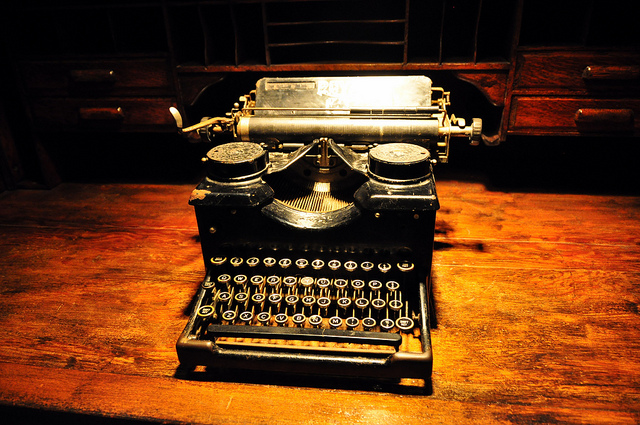I was trained as a writer.
With both a bachelor’s and a master’s degree in creative writing, I’m about as trained as one can get.
I studied with Jorie Graham at Harvard and Robert Pinsky at Boston University.
I’m a good writer. I’ve been published in magazines and books (though I’ve never written my own), and I’ve won awards—big ones. Despite this, I’ve never really had the drive to be famous.
And now, I don’t write anymore.
When I was published, and when I won things, it was because someone else said: “Here, submit to this.”
I could do that.
I felt it was my duty to comply with their demands, but nothing in me wanted the recognition. Nothing inside me said, “Book, book!”
It was always the people around me—all my life—saying: “Book!”
I sensed the fever with which my peers fought for their published works, and I recognized more deeply the rift between us.
There was a hunger in some, even an obsession, for climbing numbers of views and followers—for ever-increasingly prestigious publishing houses.
Perhaps I’m simply a private person—more of an Emily Dickinson than an Allen Ginsberg. Yet, I think it’s something more.
My love for words was the phrase in my mouth, the turn of sounds on the tongue, syllables and syntax—the surprising emptiness of space between words and the last catch of my heart before it bursts.
I did not care who loved my poem—I only cared that I loved my poem.
Jorie Graham once wrote me a recommendation so beautiful it paid my way through grad school, and I wept when I read it.
“No one will believe this!” I cried.
She had made me out to be some kind of poetic superhero, but I knew I was a simple servant.
Robert Pinsky, my sweet advisor, once requested we create our own collections of favorite poems. (He sponsored the Favorite Poem Project as Poet Laureate of the United States.)
All my favorite stuff was from the 1900s.
He tried to encourage me, “Moana, you are missing whole eras! Read Keats and Blake.”
But I didn’t care about Keats and Blake. I didn’t love them.
I stopped writing because my heart got bogged down with too much knowing.
I stopped because of the social expectations about what a writer is. I wouldn’t teach community college or write copy for an online magazine. I wouldn’t intern for free at The Atlantic.
I wanted to heal people.
For me, words were healing, but the hurdles I encountered in bringing healing through words were more than I could devote myself to.
So I became a minister.
I began using my words to heal people whose hearts were broken open by death—people in the midst of grief.
I became a birth doula and held women through the throes of labor.
I used words to cast spells on brides and grooms on their marriage day and to clear the paths to their divorce.
I blessed women after a stillbirth, or after their third miscarriage.
Nothing separates me from these people—no editors, no publishers, no toiling in the dark.
There is only my heart, touching their hearts, through my words and my hands.
Somewhere in me, I know that what takes self-promotion—takes convincing corporations that my words will make money—is by nature unnecessary.
The being of the artist creates spontaneously, possessed by inspiration, and must peddle their wares to survive or come to fame.
However, the minister is called to work by a needful congregation.
My funereal or baptismal words are needed for their survival—I needn’t convince anyone of that.
They come to me.
When my book is needed, there will be a community that arises saying: “Give us this!”
Then I won’t know how to refuse.
I’ve watched my friends successfully draw on technology to crowd-fund their creative projects and how they’ve skirted the world of publishers and producers. It is, in effect, creating new congregations that call forth what they need.
It gives me hope for the redefining of what “a writer” is.
My heart is again becoming full—I have been freed and healed by my work!
I finally have a song to sing—released from the old burdens of writing, I can return to the beauty of words.
I sense that my call to heal, as a minister and medicine woman, will soon cross the bridge back to words…
This is my bookmark, so I remember who I am when I return to that page.
Relephant Read:
A Love Affair with Words.
Author: Moana Meadow
Assistant Editor: Yoli Ramazzina / Editor: Emily Bartran
Photo: xlibber/Flickr







Read 2 comments and reply